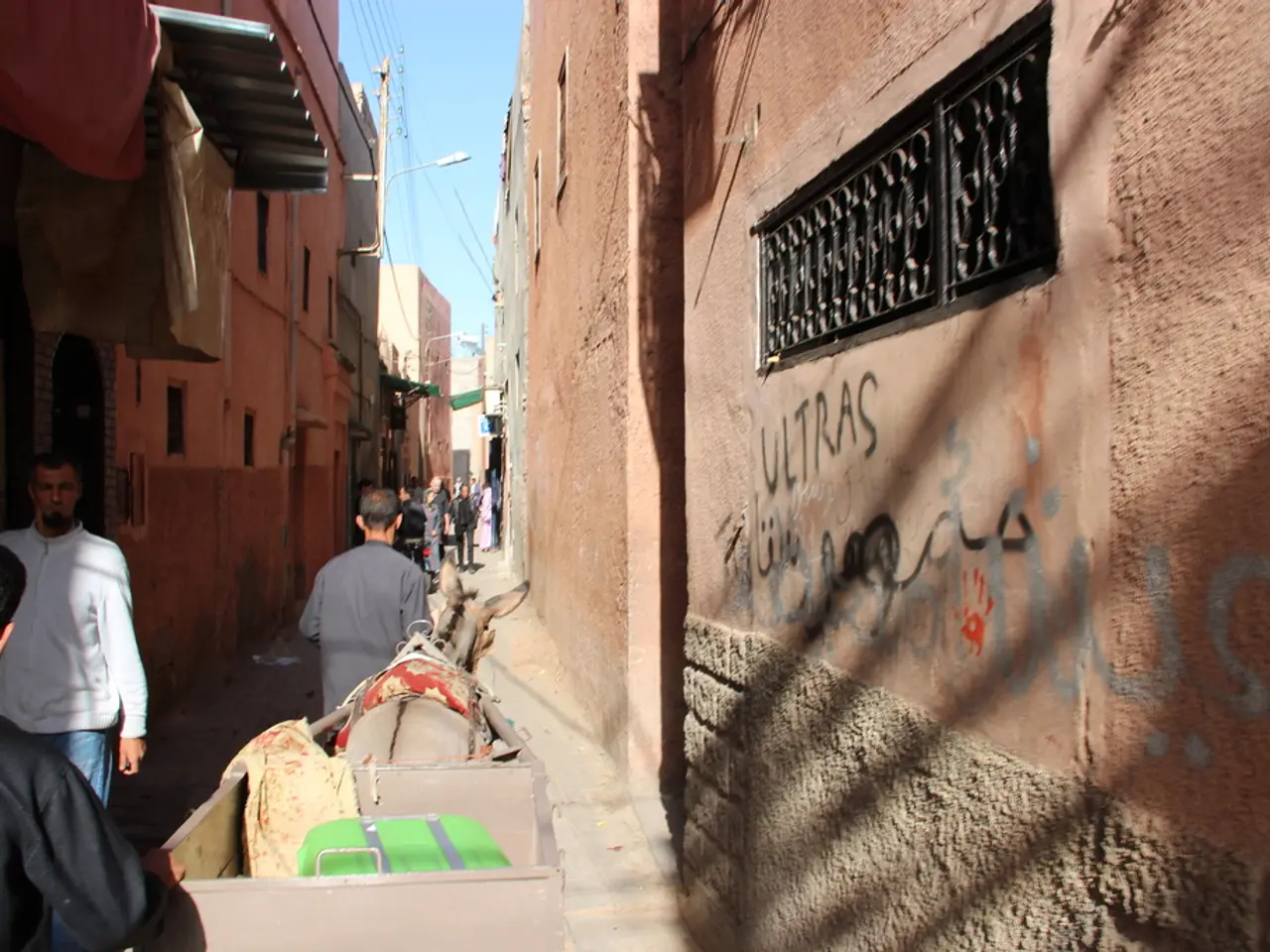During their trip to Pakistan, the Palestinian envoy criticized the United States for refusing visas for the United Nations General Assembly.
In a significant development, Ireland, Spain, and Norway have recently announced recognition of Palestine, joining over 140 countries worldwide that already extend diplomatic recognition. This move comes as the United States continues to stand firmly behind Israel, despite the mounting death toll in Gaza and expanding Israeli settlement activity in the West Bank.
The US has refused visas to President Mahmoud Abbas and his delegation for this month's UN General Assembly session and a parallel conference. This decision has been met with strong condemnation by Dr. Mahmoud Al-Habbash, an advisor to Palestinian President Mahmoud Abbas on religious affairs, who described the US decision as an "unjust, dangerous, and wrong" violation of international law.
Dr. Al-Habbash, the Chief Islamic Justice of Palestine, is currently in Islamabad with a four-member delegation to attend celebrations of the 1,500th birth anniversary of Prophet Muhammad (PBUH). During his stay, he expressed his gratitude for the "warmth of the hospitality" of Pakistan and praised the country as a "country of brave people" and described Pakistanis as "our brothers who always stand by us."
The visa refusal means the Palestinians will miss a high-level meeting on Palestine co-hosted by France and Saudi Arabia. However, Dr. Al-Habbash expects the voice of Palestine to be heard, whether at the international conference on Sept. 22 or at the General Assembly. The delegation is scheduled to deliver a message from Abbas to President Asif Ali Zardari and Prime Minister Shehbaz Sharif on bilateral ties and the Palestinian cause.
The US, as host of the UN in New York, is obligated under its agreement with the world body not to block access for accredited delegations. The reason given for the visa refusal is the US's opposition to several US allies recognizing Palestine as a state. This stance, viewed as blocking international legitimacy by the Palestinians, has been met with growing opposition.
Over 147 UN member states, including China, Norway, Spain, and Ireland, have recognized the State of Palestine. In 2025, countries such as France, Belgium, Canada, Malta, Portugal, Australia, and potentially New Zealand have announced plans to recognize Palestine officially, especially during the UN General Assembly. Even Britain has signaled openness to recognizing Palestine.
Israel's far-right government has openly advanced plans to permanently occupy Gaza and annex key areas of the West Bank, including the Jordan Valley and major settlement blocs like Ma'ale Adumim, Ariel, and Gush Etzion. Dr. Al-Habbash has stated that these plans are illegal and will have no legal or political validity.
The Gaza war, which began on Oct. 7, 2023, has killed more than 63,000 Palestinians according to Gaza health authorities. Despite this, the US continues to provide military aid and diplomatic cover to Israel.
As the international community continues to debate the future of Palestine, Dr. Al-Habbash's delegation's visit to Islamabad serves as a reminder of the solidarity and support Palestine receives from nations around the world.
Read also:
- ICE directed to enhance detention conditions following NYC immigrants' allegations of maltreatment
- Israeli finance minister issues warnings about potential annexation of West Bank territories
- United States faces rebuttal from South Africa over allegedly deceitful human rights report and assertions of land expropriation
- Accident at Rodalben Results in Injuries; Geoskop Area near Kusel Affected After Stormy Weather








